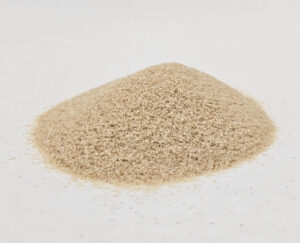Sodium alginate, a natural product derived from brown seaweed, is making waves in various industries due to its unique properties and versatile applications. In this blog, we’ll delve into the origins, manufacturing process, and diverse industrial uses of sodium alginate.
Origins of Sodium Alginate
 The discovery of alginates dates to the 1880s when Scottish chemist E.C.C. Stanford, an expert in iodine extraction, made a significant advance in seaweed chemistry when he first isolated alginate from the kelp seaweeds found on the coasts of Britain.
The discovery of alginates dates to the 1880s when Scottish chemist E.C.C. Stanford, an expert in iodine extraction, made a significant advance in seaweed chemistry when he first isolated alginate from the kelp seaweeds found on the coasts of Britain.
Sodium alginate is extracted from the cell walls of brown seaweed, specifically from species like Laminaria and Macrocystis grown in various locations with cold-current oceans worldwide, both naturally and through aquaculture.
Manufacturing Process
The production of sodium alginate involves several steps:
- Wet Chop Seaweed: The brown seaweed is chopped and treated with alkali to extract alginic acid.
- Form Sodium Alginate Solution: The alginic acid is converted into a sodium alginate solution.
- Residue Removed: Seaweed residue is removed, and calcium chloride is added to form calcium alginate fibers and hydrogels.
- Wash and Press: The fibers and hydrogels are washed, pressed, and treated with dilute acid.
- Extrude, Dry, and Mill: The final product is extruded, dried, and milled into sodium alginate powder.
Unique Properties
 Sodium alginate boasts several unique properties.
Sodium alginate boasts several unique properties.
- It is an efficient thickener
- Forms gels in the presence of calcium ions or other multivalent ions
- Non-Newtonian, shear-thinning aqueous solutions
- Excellent surface film formation
- High Gurley porosity in paper industry
- Biodegradable and biocompatible
Industrial Applications
Sodium alginate’s unique properties make it valuable resource in various industries:
Paper and Paperboard Food Packaging
Sodium alginate coating provides grease resistance and is biodegradable, making it ideal for paper and paperboard food packaging applications. Use of sodium alginate for grease resistance in paper and paperboard food contact material is desirable because it is environmentally-friendly, healthy alternative to paper and paperboard food packaging that contains PFAs.
Paper Industry
Sodium alginate imparts high Gurley porosity and excellent film formation when applied to the surface of paper. It is typically blended with starch and applied at the size press to improve barrier properties for subsequent coatings, such as pigmented coating for offset printed grades and silicone coating for release grades. Sodium alginate is also used in making easel papers as it provides a surface that does not absorb marker inks.
Textiles
Used as a print thickener, sodium alginate is perfect for vibrant textile projects, especially with cotton. It can be used on other fabrics when print line definition is not critical. It is also used in wet spinning, electrospinning, and microfluidic spinning to create biodegradable textile fibers.
Sodium Alginate Uses
Sodium alginate is used in various industrial applications:
- Welding Rods: Enhances plasticity during extrusion, reduces spatter, and ensures stable arc performance.
- Wastewater Treatment: Acts as a flocculant to remove impurities from water.
- Binder in Batteries: Used in various battery types, including silicone anode, aqueous, Li-ion, Na-ion, and Zn-ion batteries. Its hydrophilic nature helps ion transport in the electrode, contributing to safer operation and improved electrochemical performance.
- Encapsulation: Used to encapsulate fragrances, creating controlled release systems for products like potpourri.
- Thickener in Inks, Paints, and Dyes: Provides viscosity control and stability.
Market Outlook
The market for industrial sodium alginate is strong and growing, driven by its biodegradability and effectiveness as an oil/grease barrier coating. It is a sustainable alternative to PFAs, making it increasingly popular in eco-friendly applications.
Trust SNP Inc. For Your Sodium Alginate Solutions
Sodium alginate is a remarkable natural product with a rich history and a promising future. Its unique properties and wide range of applications make it an essential material in various industries. As we continue to seek sustainable solutions, sodium alginate stands out as a versatile and eco-friendly option. If you believe sodium alginate may be what you need, check out SNP Inc.’s sodium alginates solutions here or reach out to us today and we’ll find the best solution for you.
